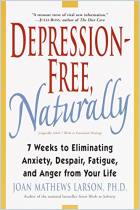Acesse a sua conta getAbstract para obter o resumo!

Acesse a sua conta getAbstract para obter o resumo!
Rodrigo Pérez Ortega
Widely Available Supplement May Explain Brain Boost from Exercise
Studies in mice show selenium increases the number of new neurons, and improves memory in old age.
Science, 2022
Sobre o que é?
The chemical element selenium may prove key to the positive effects of exercise on brain function.
Recommendation
Researchers knew that exercise can alter brain chemicals, lifting mental states in humans and potentially staving off cognitive decline. The exact process remained largely unclear until now. New research suggests selenium may play a key role in exercise-mediated memory improvement. This could open the door for applications in brain-injured patients and those suffering from dementia.
Summary
About the Author
Science journalist Rodrigo Pérez Ortega reports on health, medicine, life sciences, policy and academia.





















Comment on this summary